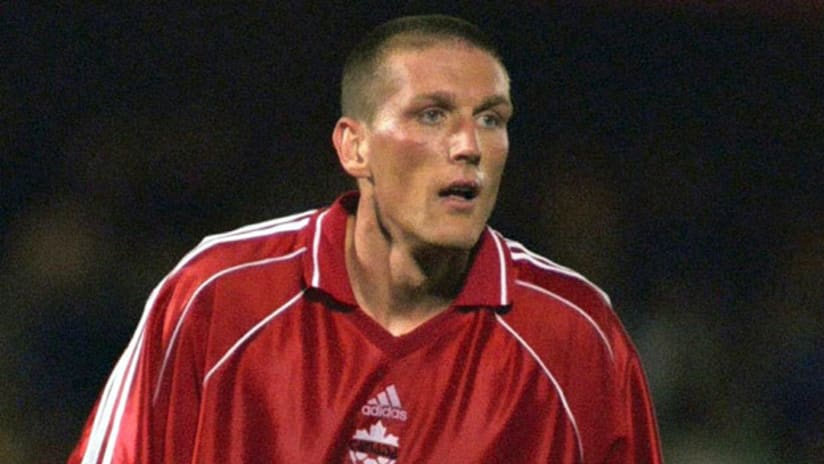Jason deVos has gone from in front of the camera to behind the scenes.
The erstwhile television analyst, who played in the UK for 12 years and captained the Canadian men’s national team to victory at the 2000 CONCACAF Gold Cup, was unveiled as the Canadian Soccer Association’s new Director of Development on Tuesday.
“I was a fortunate one [in my playing career],” deVos told reporters on a conference call. “I want to make sure that the work that we do moving forward is to try and make it possible for more kids to be able to experience the level of the game that their talents should take them to.”
The position is a newly-created one, with a focus on player and coach development at the grassroots level. It’s a familiar area for deVos, who holds a UEFA Pro coaching license and previously worked as technical director of the Oakville Soccer Club in Oakville, Ontario, the largest youth club in Canada.
The grassroots level has been undergoing significant change across Canada over the past decade, including the implementation of long-term player development (LTPD) plans and the introduction of new “high performance” leagues, such as the Ontario Player Development League, which de Vos helped create.
DeVos, in his media role, including on TSN's MLS broadcasts, has been one of the most recognizable and outspoken advocates of these changes, and has written at length about some of the challenges faced as the process unfolds.
“The most dangerous phrase in the game is ‘We’ve always done it this way,’” he said. “We have to eliminate that thinking, and think about the game on a global level. What are the best countries in player development doing now, and what are they going to be doing moving forward?”
One such challenge has been an aversion to change amongst some power brokers at the provincial and local levels, the byproduct of a long-running schism between the provincial associations and the national governing body.
While there has been progress made on healing those old wounds, deVos says a big part of his job is bringing stakeholders at the provincial and local levels on board with the grand development plans, while also appreciating the specific challenges faced in different places throughout this massive land.
“The important thing is that we have to work together,” said deVos. “I find it very ironic that in a game such as soccer where it’s all about teamwork, that far too often, we don’t work as a team to develop players in our country.”
DeVos did say the Canadian landscape does have “a great many people” who are working to grow the game, and that part of his role will be bringing those people together.
His work will also complement the efforts being put in by Tony Fonseca and John Herdman, who will remain in their respective roles as technical directors of the men’s and women’s national team programs.
Indeed, for DeVos — who never got the chance to play in a senior World Cup himself — a main priority is to help build and strengthen a system that will provide the senior national teams with as many talented players as possible.
“I always say that every national team player starts at the same place, which is at the grassroots level,” he said. “It only makes sense that that’s where we start trying to give kids the best possible experience they can get in the game.”
DeVos officially assumes his role on Sept. 5 — coincidentally, one day before the men’s national team learns its fate in the penultimate round of CONCACAF 2018 World Cup qualifying.













